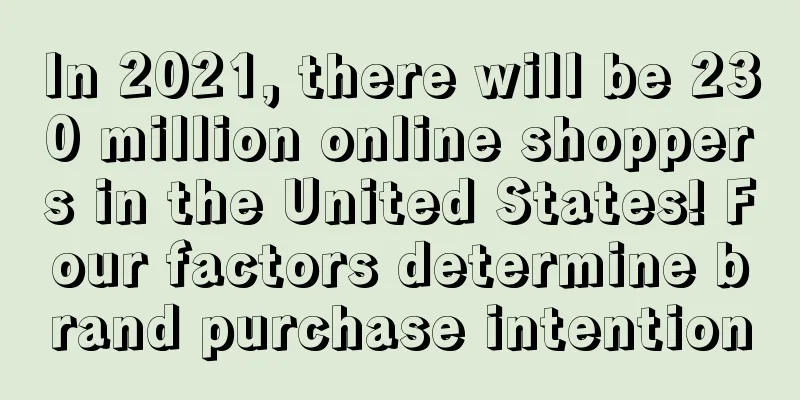Face-to-face verification of store opening information! ? Thousands of sellers have been checked

|
Although Amazon has explicitly prohibited multiple account operations, and has also implemented methods such as associating stores to prevent sellers from having multiple accounts, this still cannot stop domestic sellers. There are policies and countermeasures. Almost every novice seller will be educated by veterans on how to prevent association. However, just recently, Amazon revealed to foreign media that it is testing a new verification function, which may prevent sellers from operating multiple accounts illegally to the greatest extent possible. It is not the long-rumored video verification, but a more stringent manual review method. Video verification? Only a temporary solution As early as the first half of this month, some students in our seller group inexplicably encountered video verification when discussing registering a new account. The verification required the legal person to hold an ID card and business license to confirm the authenticity of the store registration information, which caused a heated discussion in our group at the time. However, video authentication is not new. Last year, Amazon tried to upload designated legal person video authentication on several small sites in India and Canada. Here is our report from February 2019 for everyone to see. What’s strange is that compared to staff video chatting with sellers one by one, asking sellers to shoot videos and upload them themselves is obviously a much more efficient way. Why did Amazon test a more “inefficient” way earlier this year? It was not until yesterday that Amazon disclosed the news to foreign media that it explained this to everyone. It turns out that the video call was just a helpless move. What Amazon really wanted to test was face-to-face verification of store opening information. Face-to-face verification was tested at the beginning of the year Amazon said in its statement that at the beginning of this year, it had been experimenting with new verification methods, including offline interviews with potential sellers who had submitted store opening applications to confirm whether the store opening information was authentic. Amazon has verified the information of more than a thousand newly registered stores through offline interviews, including those from China. However, due to the outbreak in February, in order to comply with the government's social safety distance requirements, Amazon terminated offline interviews and switched to online video calls for verification. This is the situation encountered by our seller group. In other words, if it were not for the epidemic, the sellers in the group who received video verification should have been interviewed offline for verification. Unexpectedly, Amazon tested the new method so decisively and boldly this time, and directly came to China, the sellers' base camp. Face-to-face verification of store information is the most stringent method, which is even more terrifying than video verification. It greatly increases the difficulty and risk of buying and selling stores, and also eliminates the possibility of opening a store with the identity information of outsiders (such as relatives and friends). Imagine that when the staff came to verify on-site, relatives who did not know Amazon at all did not know anything about it. It was unimaginable how painful it was. However, according to data from statistical agencies at the end of 2019, there are nearly 3 million third-party sellers on Amazon from China. It is undoubtedly a pipe dream to want to verify the authenticity of all stores face-to-face offline. Therefore, I predict that only some new sellers with suspicious registration information will be further audited face-to-face, and most sellers with safe information will still be subject to original algorithm audit (or video audit) . Or simply conduct a small probability spot check, and sellers who are caught operating multiple accounts can only consider themselves unlucky. Overall, the probability of being selected for face-to-face verification should not be high, but this also indicates that Amazon's attitude towards new stores is becoming more and more strict, and the threshold for registering stores will definitely become higher and higher in the future. Now that Amazon is struggling to deal with the FBA shipping capacity issue, it is recommended that you register a few stores as a backup. |
<<: These masks were directly seized by customs! The secrets of customs clearance are revealed
>>: A major overhaul of the site's advertising! New social features added
Recommend
A wave of store closures occurred after the first day of the Internet!
Just when sellers were still enjoying the huge sa...
Urgent! The EU bans the import of all medical equipment produced in China
Compared with the previously released list, only C...
Amazon's own sales are shrinking! Third-party sellers are going crazy
Recently, an overseas data agency released the st...
Always be alert to the top ten common mistakes in Amazon operations, because I fell into the trap!
1. Risk of association when one person operates m...
How to catch up with the AI explosion era? AMZ123 "AI Tool Navigation" helps!
It is learned that with the advent of the AI big...
David's Bridal, the largest wedding dress retailer in North America, files for bankruptcy protection!
According to foreign media reports, David's Br...
Revealed: What is the black technology that can delete comments and restore links?
Remember that on August 14, Amazon sellers encoun...
Notice prohibiting the use of misleading store labels in product images
Effective date: March 8, 2021 Applicable sites: Al...
The US online grocery delivery market grew 41.7%! Outsourcing to third parties has become a trend!
According to a survey by eMarketer, U.S. grocery d...
12 little-known facts about Amazon that 70% of operators don’t know
1. Download videos in comments with videos and rel...
Emergency suspension of flights! The British virus has mutated! Many European countries have officially announced...
Recently, the global epidemic has rebounded again,...
Amazon was found responsible for its products! A wave of strict insurance inspections is coming
Recently, foreign media broke the news that Amazon...
Amazon's warehousing policy will usher in a major adjustment!
According to reports from multiple industry media,...
What is Amazon Smile? Amazon Smile Review
Amazon Smile is a charity project of Amazon. Witho...









